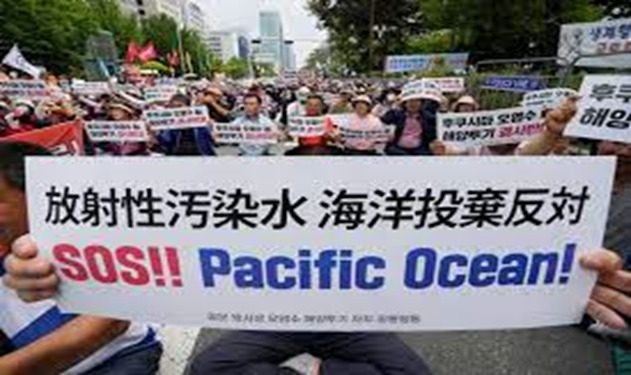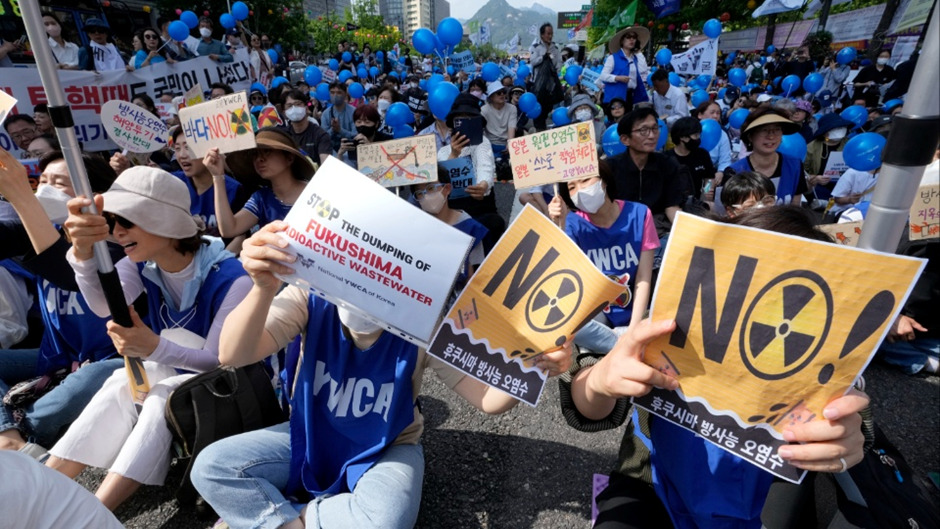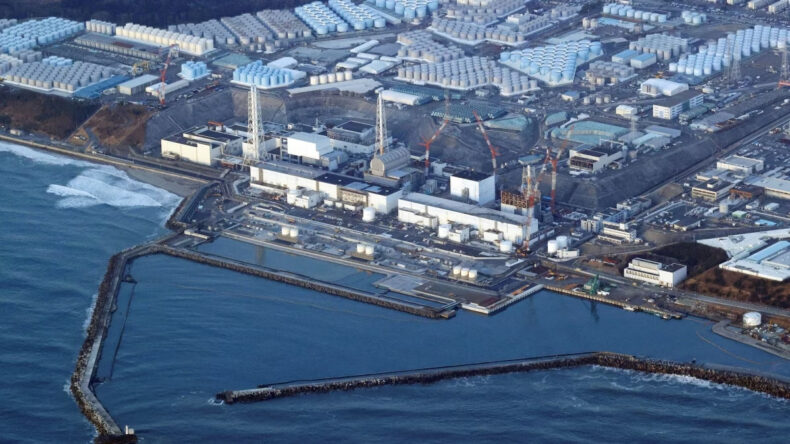Despite objections from its neighbouring countries, Japan is set to commence the release of treated radioactive water from the Fukushima nuclear plant, which was impacted by a tsunami, into the Pacific Ocean starting tomorrow.

Since the plant’s devastation by the 2011 tsunami, approximately 1.34 million metric tonnes of water. Following filtration and dilution, the water is scheduled to be discharged gradually over a span of 30 years. Japan’s Prime Minister, Fumio Kishida, declared on Tuesday, subsequent to a Cabinet session, that if the weather and sea conditions prove suitable, authorities will formally request the plant’s operator to be prepared for the commencement of disposal on August 24th.
Fukushima disaster of 2011
The 2011 Fukushima reactor incident released radioactive materials into the air, spreading locally and globally through wind and precipitation. Radioactive iodine, tellurium, and caesium, with a long half-life of 30 years, caused significant environmental and human harm. Around the plant, 120,000 people in a 40-km radius evacuated due to high radiation. Some returned after decontamination efforts. The incident highlighted the persistent danger of radioactive substances, particularly caesium, causing ongoing high radiation levels near Fukushima.
Concerns over Japan’s Radioactive water
The discharged radioactive water might have adverse effects on marine ecosystems, potentially contaminating aquatic life, affecting biodiversity, and disrupting food chains. The release of radioactive water might trigger changes in the behaviour, reproduction, and migration patterns of marine species, disrupting the natural balance of ecosystems. Another severe effect could be on the economy. If seafood from the region becomes tainted with radiation, it could lead to trade restrictions and a decline in the fishing industry, impacting local economies. Despite assessments, the long-term effects of the radioactive discharge may not be fully understood, potentially leading to unforeseen consequences for marine life and human health.

Image source: People’s World
China’s Backlash
China has been particularly outspoken in its opposition, with Chinese officials accusing Japan of using the ocean as its “personal waste disposal” and irresponsible waste disposal. China vows to protect the marine environment, food safety, and public health, expressing concerns about potential impacts. South Korea and China have banned Fukushima seafood imports due to contamination worries. These bans reflect economic and health concerns arising from the release of radioactive water. It’s vital to address these concerns through transparent communication and collaboration among stakeholders to manage the situation responsibly.













